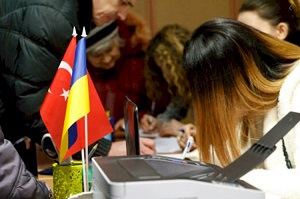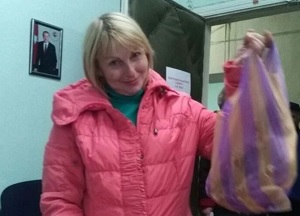How the Medici Family Transformed Finance: A Historical Journey from Renaissance to Modern Economics
Murat Ülker’s blog unravels the Medici family’s financial strategies, cultural patronage, and their enduring impact on modern banking and art. Discover how the Medici family overcame the Catholic Church’s interest ban, redefined Renaissance banking, and influenced art and politics in Europe. Murat Ülker’s essay connects historical lessons to today’s economic and cultural challenges.

How the Medici Family Transformed Finance: A Historical Journey from Renaissance to Modern Economics
The Medici Family’s Lasting Legacy in Finance and Art
Murat Ülker, renowned Turkish businessman and art collector, delves into the intricate history of the Medici family in his latest blog post. Drawing inspiration from Tim Parks’ Medici Money, Ülker explores how this influential Renaissance-era dynasty redefined finance, circumventing the Catholic Church’s prohibition on interest, and laid the foundations of modern banking. His detailed analysis bridges the Medici family’s financial ingenuity and cultural patronage with today’s global economic landscape.
Breaking Religious Barriers: The Rise of Modern Banking
In his essay, Ülker highlights the Medici family’s ingenious methods to navigate the Catholic Church’s ban on usury during the Middle Ages. The family introduced innovative financial mechanisms such as “service fees” and “agency charges,” enabling them to operate a vast banking network across Europe without violating religious principles. Ülker underscores how these strategies allowed the Medicis to amass extraordinary wealth while maintaining their devout image.
This financial ingenuity went hand-in-hand with a broader societal strategy. By embedding themselves within the religious and cultural framework of the era, the Medicis not only revolutionized banking but also shaped Florence into the epicenter of the Renaissance.
Art as Power: Medici Influence on Renaissance Culture
Murat Ülker sheds light on how the Medici family used art and culture to solidify their power and influence. Lorenzo de’ Medici, known as “Lorenzo the Magnificent,” patronized legendary artists such as Michelangelo and Botticelli, transforming Florence into a beacon of creativity. The Medicis strategically commissioned works of art that both elevated their public image and reinforced their political authority.
By aligning their legacy with the Church and commissioning religious-themed art, the Medici family blurred the lines between faith, power, and art. Ülker’s analysis reveals how their investments in culture became an early form of public relations, ensuring their lasting legacy.
The Medici and the Reformation: Seeds of Religious and Political Change
Ülker also delves into the Medici family’s complex relationship with the Church. He notes how Pope Leo X, a member of the Medici dynasty, implemented financial policies to alleviate the Vatican’s monetary troubles, inadvertently sparking Martin Luther’s Reformation. This critical period not only reshaped religious thought in Europe but also cemented the Medici family’s role as key players in Europe’s transformative history.
Lessons for Modern Economics
Drawing parallels between the past and present, Murat Ülker reflects on how the Medici family’s pioneering banking practices laid the groundwork for today’s credit and interest systems. However, he cautions against the moral and social dilemmas posed by unchecked economic power. Ülker emphasizes the importance of balancing financial innovation with societal benefit, urging a reevaluation of modern capitalism through the lens of history.
Quoting the Ottoman poet Bâkî, Ülker concludes with a poignant reminder: “What remains of this world is but a pleasant echo.” His essay invites readers to reflect on the lasting interplay between economics, culture, and morality.
Why This Matters Today
Murat Ülker’s exploration of the Medici family goes beyond history, offering insights into contemporary economic and cultural dynamics. By examining the intersection of finance, politics, and art, his analysis highlights the timeless relevance of ethical considerations in wealth and power. This thought-provoking piece serves as a bridge between the lessons of the past and the challenges of today’s interconnected world.






































